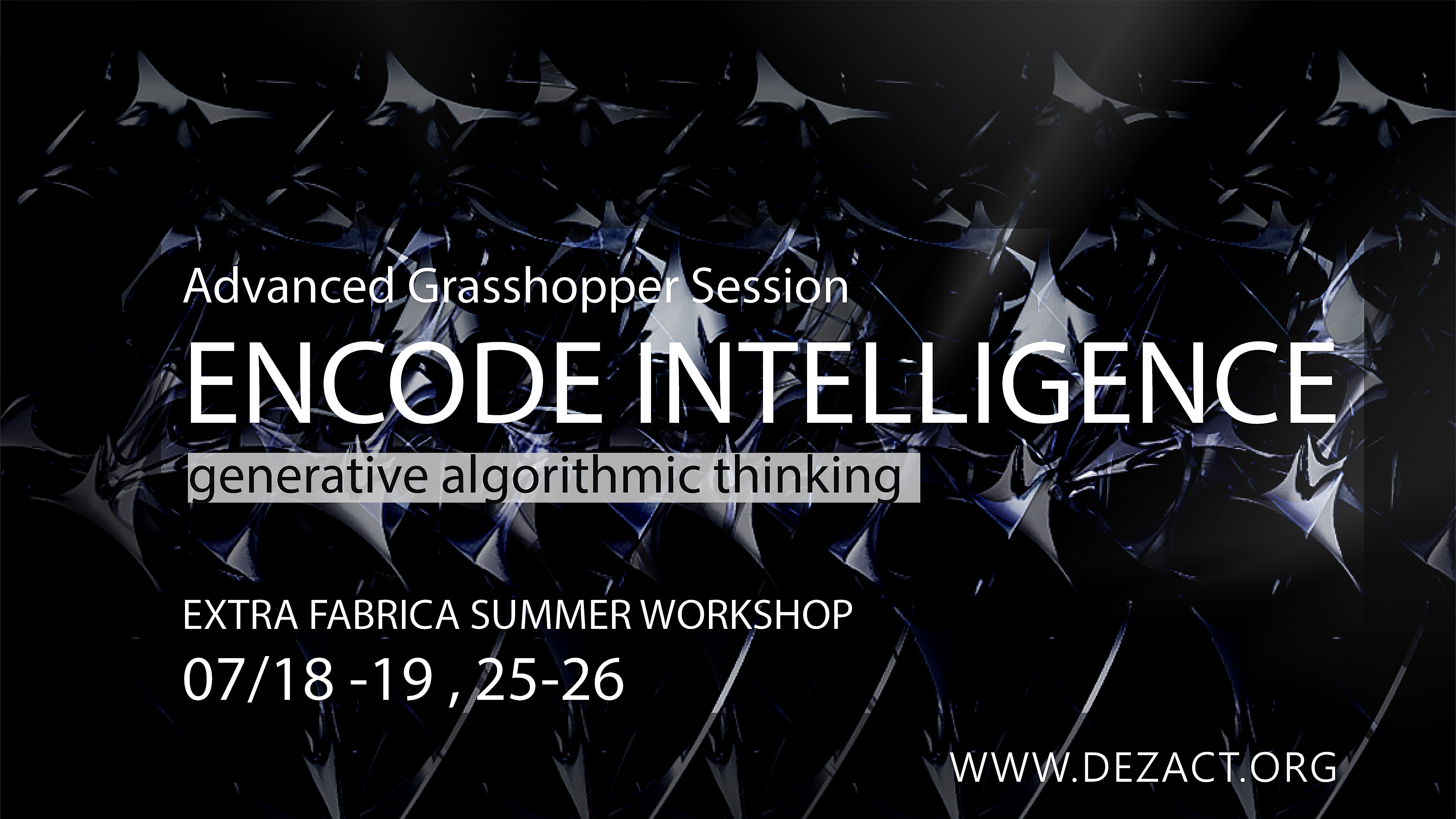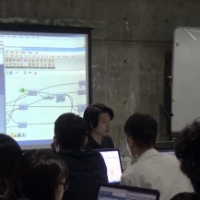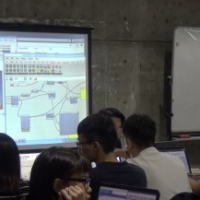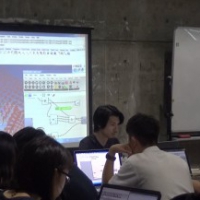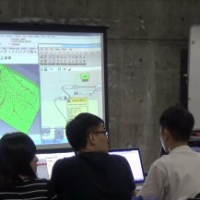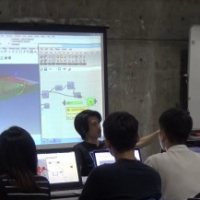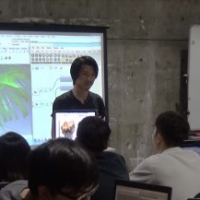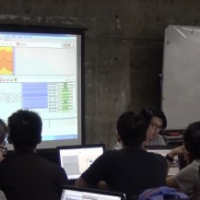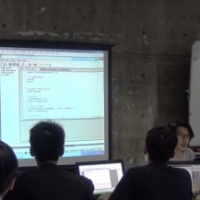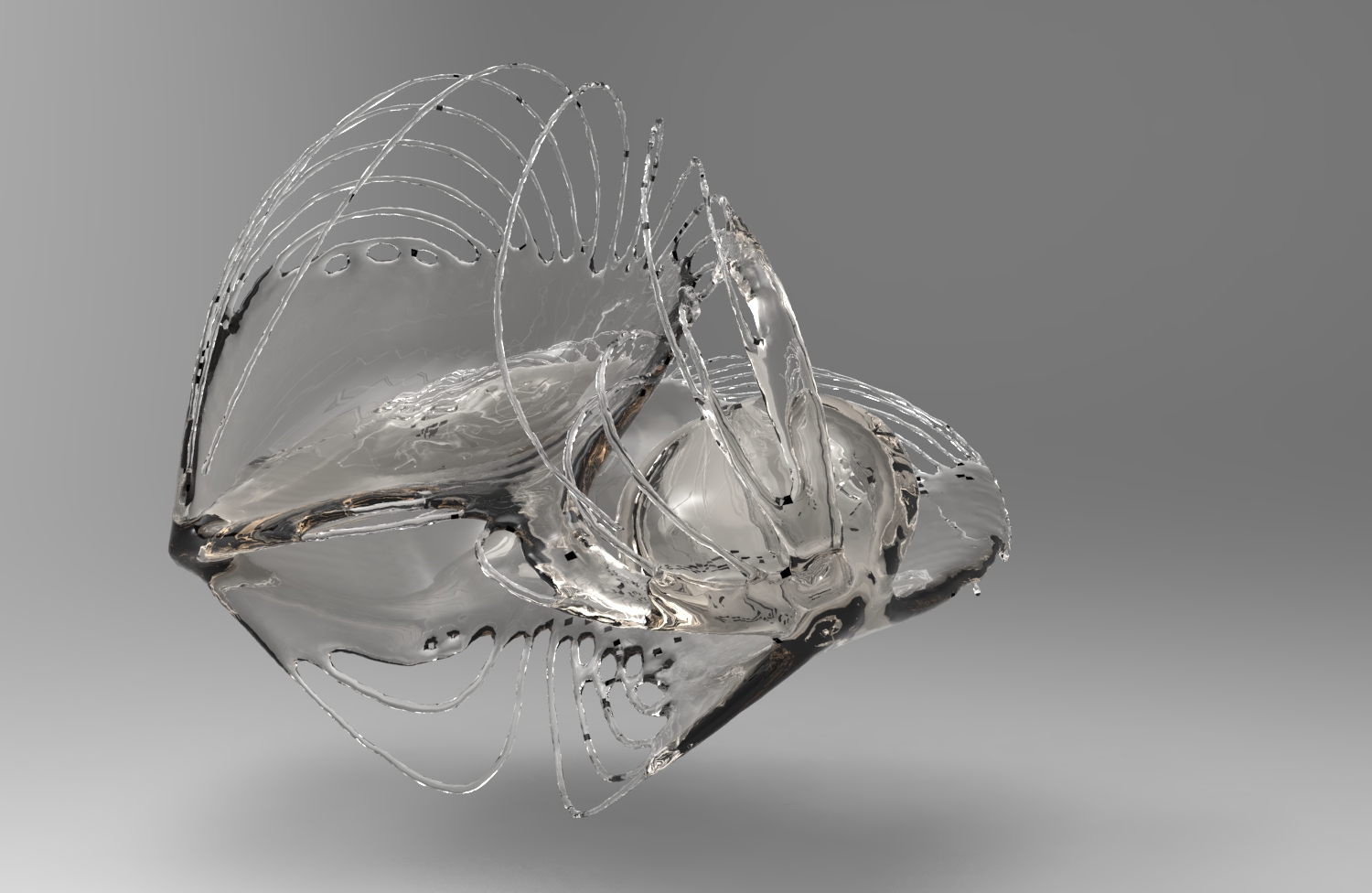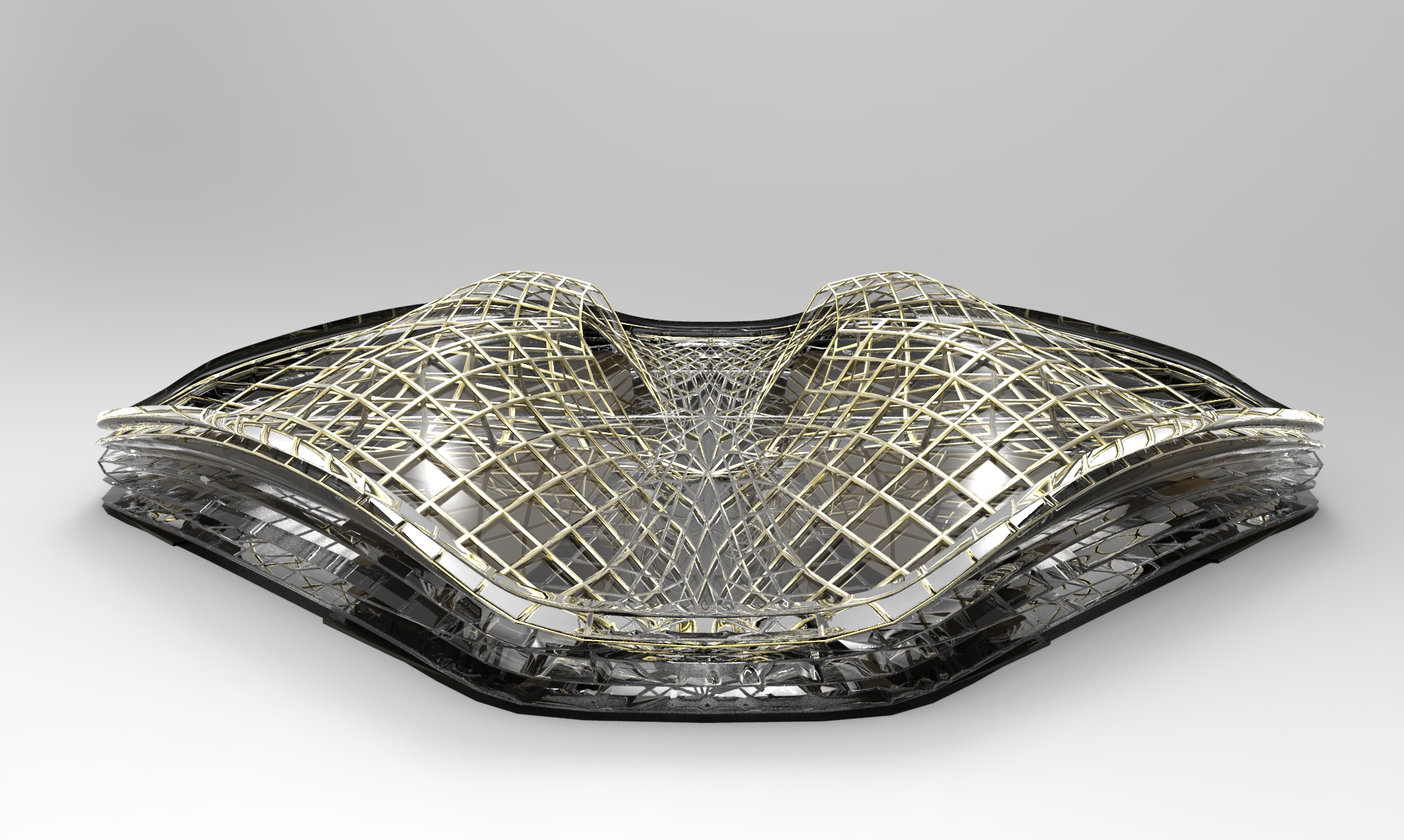Encoded Intelligence Workshop
+ Grasshopper Workshop
Date: 18 – 19 and 25 – 26 July, 2016
Venue: Shih Chein University, Taipei, Taiwan
Tutor : Ping-Hsiang Chen
Software
– Rhino 5.0 / Grasshopper
– Kangaroo 2.0
– Ladybug
– Anemone
– Mesh+
– Weaverbird
– Human
– Paneling Tools
– Fab Tools
Course Introduction
The use of computational tools has been shifted from ideas representation to ideas exploration lately. With the introduction of F2F fabrication process, digital models can now communicate seamlessly with machines such as 3D printer, laser cutter and CNC, which opens up a wide range of possibilities for designer to realize such process not only in graphical but physical forms. Emergence is a relatively new and popular theory architects have employed to realize forms with defined rules. However, without clearly understanding relationships between parameters, complex systems may simply emerge because of the nature of computational calculation, and detach from the intelligent process of a design.
What does resolution mean to a design? How algorithmic aid design can enhance the resolution of a design but not to complicate it? The Encoded Intelligence Workshop aims at rising up questions about the role of parametric design tools utilized today and introducing a series of generative modeling techniques that look at different design resolutions. Students will learn how to generate forms beyond just complexity. Throughout the workshop attendees will be exploring the notion of data, computational logic, and learn how to intervene the process of design by altering certain information. Both global and local condition will be investigated in day 1. Force and time based design approach will be introduced in day 2. Iterative and generative methods will be the focus of day 3. In the last day of the workshop, we will be looking at basic programming language – python.
Content
Day1 Adaptive Skin
Associative Modeling
Data Structure
Data Grid Manipulation
Proximity Based Modelling
Envelop Construction
Mathemetic Expression
Geometric Typology
Panelization
Data Retrieval and Replacement
Day2 Complex Form Generation & Fabrication
Geometric Deformation Methods
Mesh Topological Analysis
Force Based Modeling – Kangaroo
Mesh Deformations
Mesh Tessellation and Subdivision
Flat Surface Mesh Planarisation
Encode Environmental
Day3 Vector Field Operation
Particle Trajectories and Target Seeking
Generative Algorithm – Galapagos
Intelligent Agent
Iterative Modelling
Time Based Generative Method
Particles Growth System
Day4 GH Python Introduction
Basics
Function
Terrain Generation
Recursive Branching System
Encode Material
OOP Introdcution
Object-Oriented Programming
Modular Connectivity
